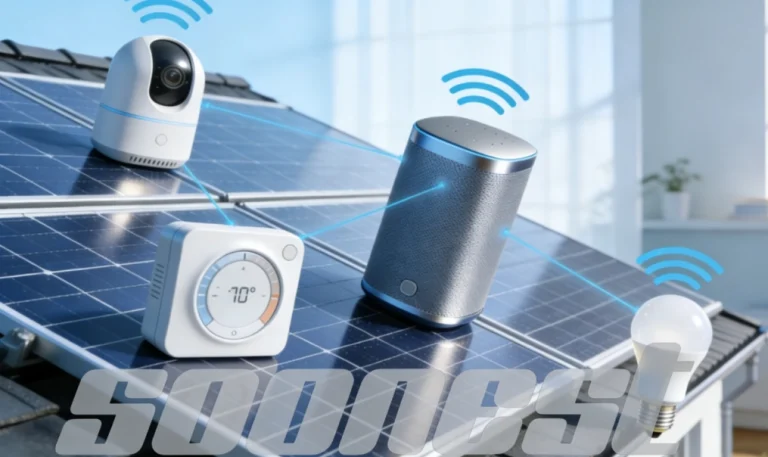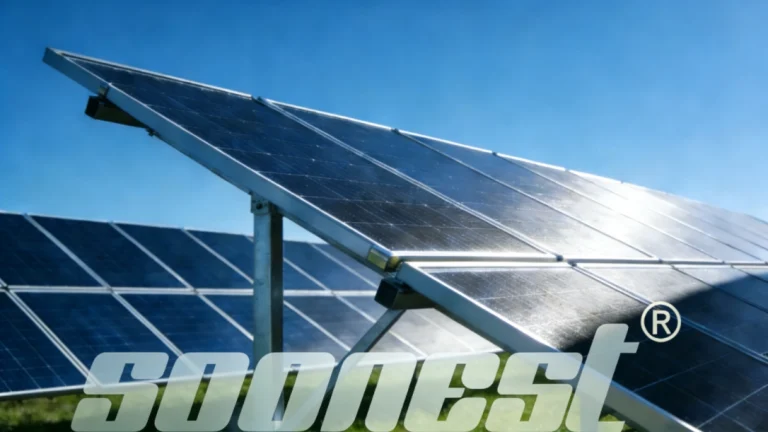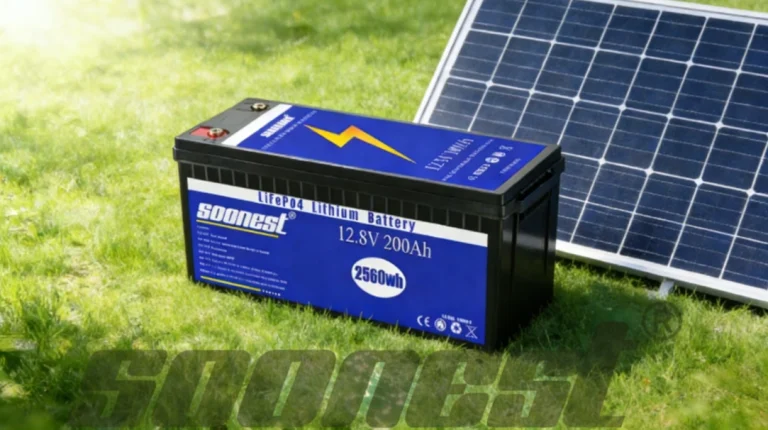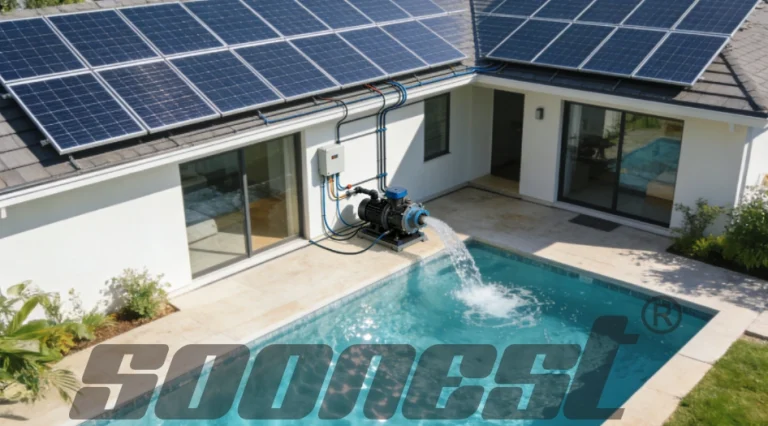The Basics of Solar Panel Voltage
How Do Solar Panels Create Voltage?
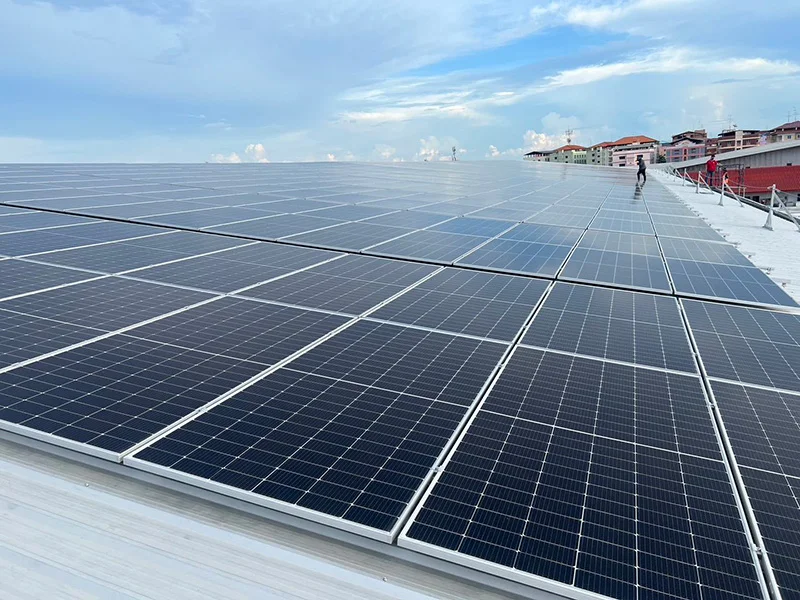
Solar panels make electricity from sunlight. They use photovoltaic cells. When sunlight hits these cells, it makes electrons wiggle in a special material. This creates a direct current (DC) voltage. We can use this voltage to run things. How much voltage a panel makes depends on how it’s made and how many cells are hooked up together. For example, a normal solar panel might make 18-22 volts in regular weather.
What Changes Solar Panel Voltage?
Many things can affect a solar panel’s voltage. Heat is a big one. Hot days can lower voltage because electrons get too jumpy. Also, shade from trees or dirt on the panel blocks sunlight. This makes the panel work less well. The way the panel points at the sun matters too. If it’s not angled right, it won’t make as much solar battery voltage. Keeping panels clean and set up right helps them work great.
How Do Photovoltaic Cells Make Voltage?
Photovoltaic cells are the heart of solar panels. Each cell has layers of stuff like silicon. These layers are treated to have positive and negative sides. When sunlight hits, an electric field forms. This field pushes electrons to move, creating a voltage. Lots of cells are linked in a panel. Their voltages add up to give the total solar battery voltage the panel makes.
Battery Voltage Fundamentals
How Do Batteries Hold and Share Energy?
Batteries save energy with chemicals. They give it out as electricity when you need it. Inside, chemical reactions happen between two parts called the anode and cathode. There’s a liquid called an electrolyte, too. When you use the battery, electrons flow from the anode to the cathode through a wire. This powers your stuff.
What Are the Key Parts of Battery Voltage?
Battery voltage depends on how it’s built and what it’s made of. For example, lead-acid batteries usually give 12 volts per group of cells. Lithium-ion batteries give about 3.6 to 3.7 volts per cell. The battery’s charge level changes voltage too. A full battery has more voltage than an empty one. These differences are super important for matching solar battery voltage in solar systems.
How Do Different Batteries Vary in Voltage?
Different batteries have special voltages and strengths. Lithium iron phosphate (LiFePO4) batteries are really safe and last a long time. They’re awesome for saving solar energy. Phosphate-based batteries are strong even in tough weather. Gel batteries work okay in hot or cold places, but hold less energy than lithium-ion ones. Knowing this helps pick the best battery for solar battery voltage needs.
Why Talk About Soonest?
Soonest is a great company that makes batteries for solar systems. Their lithium-ion batteries match solar battery voltage just right. They use smart systems to keep batteries safe and strong for years. Soonest’s batteries team up well with solar panels. They give steady power for homes or businesses. Their focus on quality makes them a cool choice for solar setups.
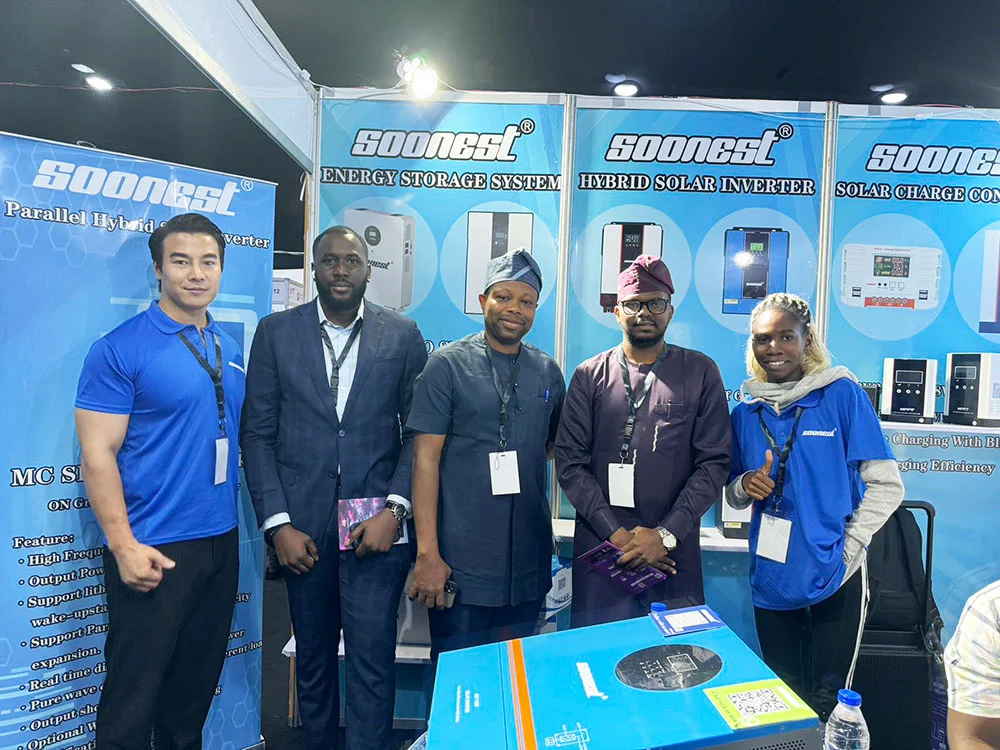
Interaction Between Solar Panels and Batteries
Why Is Matching Voltage So Important?
Matching solar battery voltage between panels and batteries is really important. If the panel’s voltage is too high or too low, you lose power or hurt the system. For example, a 24V panel on a 12V battery without control can overfill it. This wastes energy or breaks parts. Getting voltages to match keeps everything working well and easily.
How Do Charge Controllers Manage Voltage?
Charge controllers act like helpers for voltage. They make sure the solar battery voltage from the panels reaches the batteries safely. They lower high voltages or stop batteries from losing too much power. This keeps the system safe and working great.
How Do You Stop Overfilling or Losing Power?
Fancy charge controllers use a tool called Maximum Power Point Tracking (MPPT). This grabs up to 85% of the energy from panels for batteries. MPPT tweaks the voltage based on sunlight. It stops overfilling by controlling the flow. It also cuts power to gadgets if the battery gets too low. This keeps batteries safe from harm.
What Helps Power Flow Smoothly?
Good power flow needs parts that get along. Solar panels, batteries, and charge controllers must fit together. The controller has to match the panel and battery details. This keeps solar battery voltage steady, even if the weather gets weird.
Voltage Matching for Better Performance
Why Matching Panel and Battery Voltage Is Key
Matching solar battery voltage makes a solar system awesome. When the panel’s voltage fits the battery’s needs, energy flows well and easily. This makes the system super strong. If voltages don’t match, you might overfill the battery. Or you could waste power. For example, a 24V panel on a 12V battery without a controller can cause trouble. It might even ruin the battery.
Challenges in Keeping Voltage Steady
Weather’s Effect on Solar Panels
The weather can mess with solar battery voltage. Hot days make the voltage drop because electrons get wild in the heat. Shade from trees or dirt on panels blocks sunlight. This lowers how well the panel works. Also, if panels aren’t tilted right, they miss sun’s rays. These things make keeping voltage steady a big challenge.
Battery Wear and Voltage Changes
Batteries get tired over time. Charging and using them a lot wears them down. This makes it tough to keep a steady solar battery voltage. For example, lithium-ion batteries lose some strength after heavy use. This can cause voltage mix-ups. Smart tools are needed to keep things running smoothly.
Advanced Solutions for Better Teamwork
How Can You Use Great Products for Solar and Battery Work?
Getting panels and batteries to work together needs cool parts. These fix issues like voltage mix-ups and weather changes. Using top tech makes the system strong for a long time.
Charge Controllers: Smart Voltage Helpers
Charge controllers are super important for handling solar battery voltage. The best ones use MPPT tech. This adjusts the voltage based on sunlight. It grabs up to 85% of the energy for the battery. MPPT stops overfilling and protects against low power. This keeps batteries happy and safe.
Lithium-Ion Batteries: Strong and Steady Storage
Lithium-ion batteries are great for solar systems. They pack lots of energy in a small space. They last a long time, too. These batteries keep solar battery voltage steady, even when the weather shifts. They’re perfect for places needing tough power storage.
Inverters: Keeping Power Even
Inverters turn DC power from panels into AC power for home stuff. Cool inverters use tools like RS-485 to monitor power in real time. This keeps solar battery voltage even and makes sure power flows without breaks.
Future Trends in Solar Panel and Battery Technology
What’s New with High-Voltage Solar Panels?
High-voltage solar panels are a big leap forward. They have better photovoltaic cells. These work great even in bad weather. They lose less power in the system. This makes them awesome for matching solar battery voltage in big batteries.
What’s Next for Batteries and Strength?
New Batteries for More Power
The future of batteries is exciting. New ideas like silicon anodes hold more energy than old graphite ones. Solid-state batteries are coming too. They’re safer and last longer than liquid ones. These will boost solar battery voltage and make systems tougher.
A Dream for Green Energy Systems
As more people use green energy, smarter tech will change things. Companies like Soonest are leading the way. They make batteries that fit solar battery voltage needs. They’re also working on neat tools like AI to guess and improve how systems work. This will make solar power even cooler in the future.
FAQ
Q1: How do charge controllers keep my battery safe?
A: They manage solar battery voltage from panels to batteries. This stops overfilling or losing too much power, which could hurt the battery.
Q2: Why does heat matter for solar panel work?
A: Hot weather lowers solar battery voltage because electrons get too active. Keeping panels cool helps them work better.
Q3: Are lithium-ion batteries good for off-grid setups?
A: Yes, they hold tons of energy and last long. This makes them great for off-grid systems needing steady solar battery voltage.

